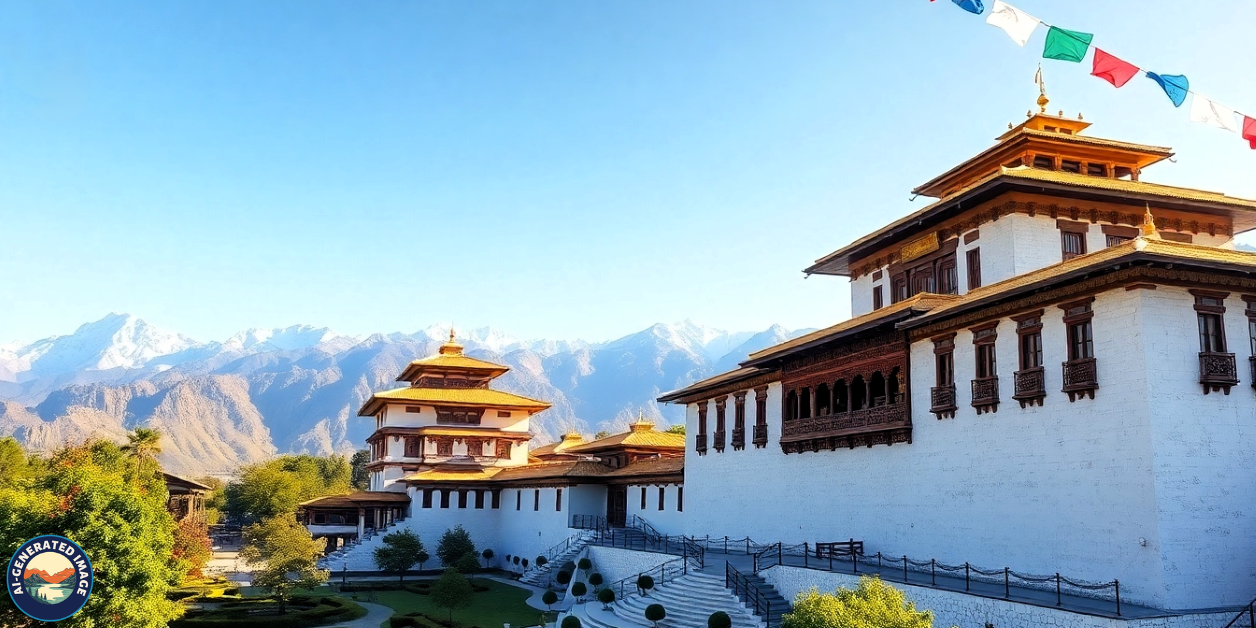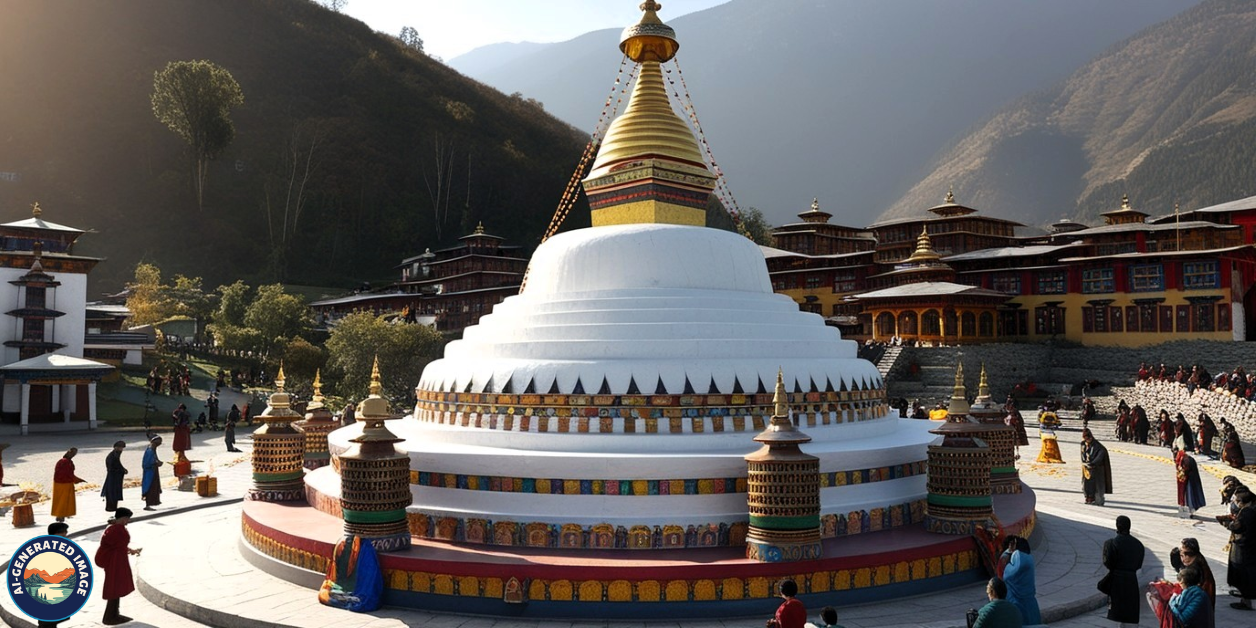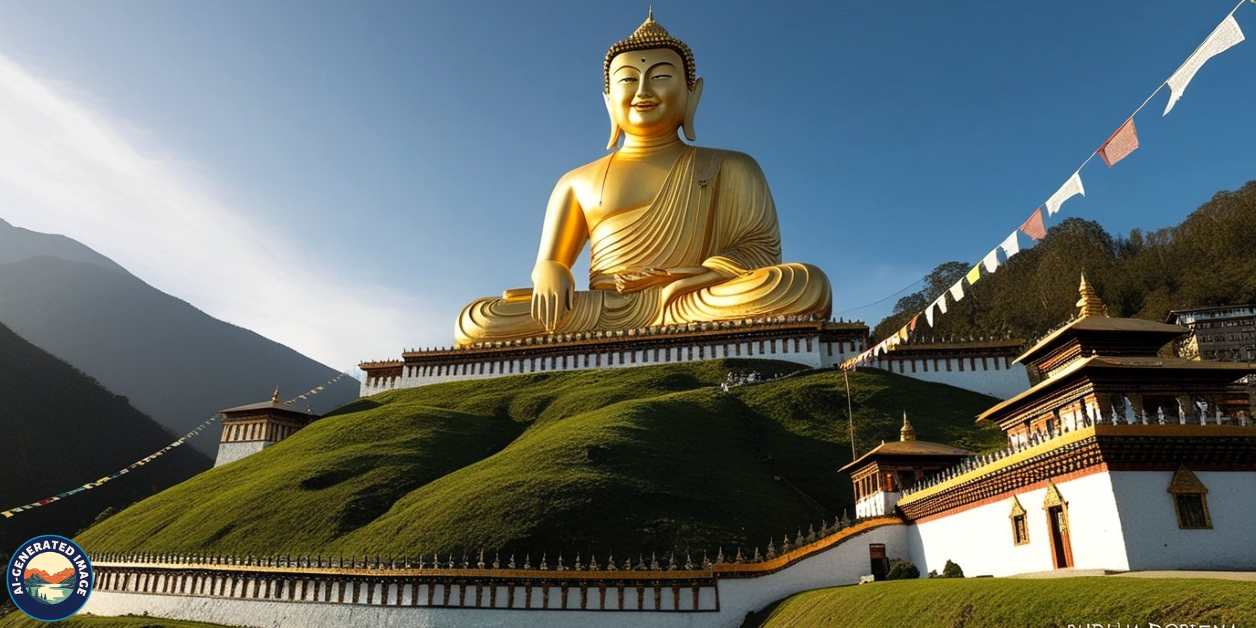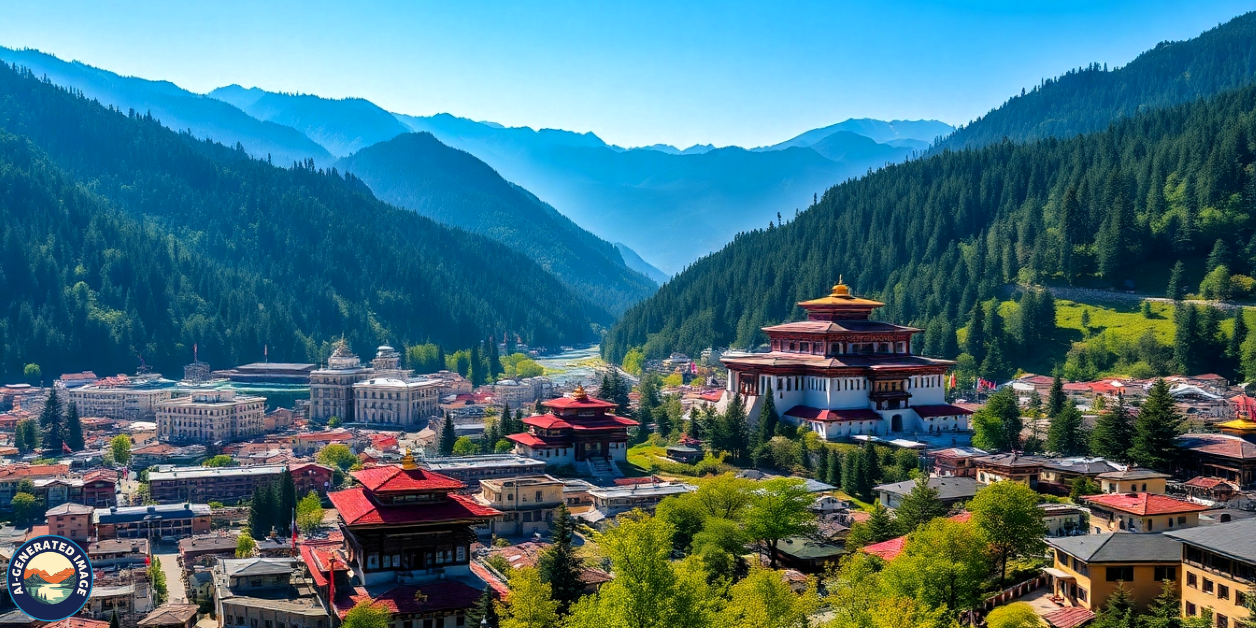Introduction
Nestled in the lap of the majestic Himalayas, Thimphu, Bhutan’s capital, is a treasure trove of culture, tradition, and stunning landscapes. A visit to this city offers an extraordinary blend of ancient customs and modern conveniences, making it a dream destination for every traveler. Let’s explore the wonders of Thimphu!
History
Thimphu’s roots are deeply intertwined with Bhutan’s rich history. Initially a small settlement, it evolved into the administrative and cultural hub of the country in 1961 when it was declared the capital. Its transformation has been thoughtful, preserving centuries-old traditions while embracing modern development. Every monument, temple, and dzong (fortress) reflects the city’s commitment to heritage and identity.
Geography and Climate
Situated in a picturesque valley along the Wang Chhu River, Thimphu is surrounded by verdant hills and terraced farmlands. Perched at an altitude of about 2,320 meters, the city enjoys a moderate climate throughout the year. Spring and autumn are especially enchanting, with clear skies and vibrant landscapes, while winter paints the region with a blanket of snow, adding to its charm.
Thimphu’s Rich Culture
Thimphu thrives on its cultural vibrancy. It is home to Bhutan’s most celebrated festivals, including the Thimphu Tshechu, which features mesmerizing masked dances and ancient rituals. The city’s dedication to preserving its heritage is also evident in the National Folk Heritage Museum and the art of traditional weaving at the Handicrafts Emporium.
Bhutanese culture comes alive in every corner of the city, offering visitors a chance to immerse themselves in its unique traditions.
Must-Visit Landmarks
Thimphu boasts some of the most iconic sites in Bhutan:
-
Tashichho Dzong:
A grand fortress that serves as the seat of government and the monastic body. Its architectural elegance and manicured gardens are a sight to behold.

-
Memorial Chorten:
This whitewashed stupa is a sacred site where locals gather to pray and spin prayer wheels in reverence.

-
Buddha Dordenma:
An enormous golden Buddha statue sitting atop a hill, offering panoramic views of the valley and a serene environment for reflection.

Local Cuisine
Thimphu’s culinary scene is as diverse as its culture. Traditional Bhutanese dishes like Ema Datshi (a spicy chili and cheese stew) and Phaksha Paa (pork with radishes) are staples no visitor should miss. Head to Bhutan Kitchen or the Folk Heritage Restaurant for a taste of authentic flavors. Street vendors also offer delicious momos and fried snacks, perfect for a quick bite.
Outdoor Adventures and Natural Beauty
For those with a penchant for adventure, Thimphu offers incredible opportunities to connect with nature. Hiking trails like the Wangditse Trail and hikes to Tango and Cheri Monasteries are not only scenic but also spiritually uplifting. The surrounding forests, dotted with fluttering prayer flags, provide a serene backdrop for exploration.
Nature enthusiasts can also visit the nearby Jigme Dorji National Park, which teems with diverse flora and fauna.
Shopping
Shopping in Thimphu is an experience in itself. From handwoven textiles and intricately carved wooden items to vibrant Bhutanese paintings, there’s no shortage of unique souvenirs. The Centenary Farmer’s Market is a hub for local produce and crafts, while Norzin Lam offers an array of boutique stores selling traditional goods. Every purchase supports local artisans, making it a meaningful keepsake from your journey.
Religion and Spirituality
Thimphu is the spiritual heart of Bhutan, with Buddhism deeply embedded in its way of life. Monasteries such as Changangkha Lhakhang, perched on a hill overlooking the city, and the Dechen Phodrang Monastery, known for its serene ambiance, are must-visits for those seeking peace and reflection. These sacred sites embody the profound spirituality that defines the Bhutanese people.
Thimphu’s Vibrant Nightlife
While Thimphu’s nightlife is more subdued than in metropolitan cities, it offers a unique blend of entertainment. Mojo Park is a popular spot for live music, featuring performances by local and international artists. For a more cultural evening, attend traditional dance and music shows at venues like the Royal Academy of Performing Arts.
Cafes such as Ambient Café provide a cozy ambiance to wind down with a hot beverage after a day of exploration.
Accommodation Options
Whether you’re traveling on a budget or seeking luxury, Thimphu has accommodations to suit every preference:
-
Affordable Stays:
Budget-friendly guesthouses such as the Hotel Norbuling provide cozy and clean rooms without breaking the bank.
-
Luxury Experiences:
Upscale hotels like Le Meridien and Taj Tashi offer world-class amenities and spectacular views of the valley.
Homestays are also a fantastic option for experiencing Bhutanese hospitality firsthand.
Transportation and Connectivity
Getting to Thimphu is simple. The city is connected to Paro International Airport via a scenic one-hour drive. Private taxis and hired vehicles are the most common modes of transport.
Within Thimphu, you can easily navigate on foot or by taxi, allowing for spontaneous exploration of the city’s charming streets.
Environmental Sustainability
Bhutan’s dedication to sustainability is evident in Thimphu, where eco-friendly initiatives are embraced. The city has implemented bans on plastic bags and promotes waste segregation to protect its pristine environment. Visitors can contribute by choosing eco-conscious tour operators and supporting green practices during their stay.
Best Time to Visit
Thimphu is enchanting year-round, but spring (March to May) and autumn (September to November) stand out as the best times to visit. During these months, the weather is pleasant, and the natural beauty of the region is at its peak. These seasons also coincide with major festivals, making your visit even more rewarding.
Conclusion
Thimphu, with its captivating blend of heritage, culture, and natural beauty, offers an unforgettable journey for travelers. From its historic landmarks and vibrant festivals to its serene trails and warm hospitality, the city invites you to discover the very essence of Bhutan. So pack your bags and let Thimphu leave you with memories to cherish forever.
FAQs
1. What makes Thimphu special?
Thimphu stands out for its seamless blend of traditional culture and modern development, making it a one-of-a-kind destination.
2. Do I need a guide to explore Thimphu?
Yes, Bhutan requires tourists to book through a licensed tour operator, which includes a guide for your trip.
3. Is Thimphu suitable for solo travelers?
Absolutely! Thimphu is a safe and welcoming city, offering a variety of activities for solo adventurers.
4. What’s the local currency in Thimphu?
The currency is the Bhutanese Ngultrum (BTN), but Indian Rupees are also widely accepted.
5. How many days should I spend in Thimphu?
Three to five days is ideal for exploring Thimphu’s main attractions and soaking in its cultural charm.

